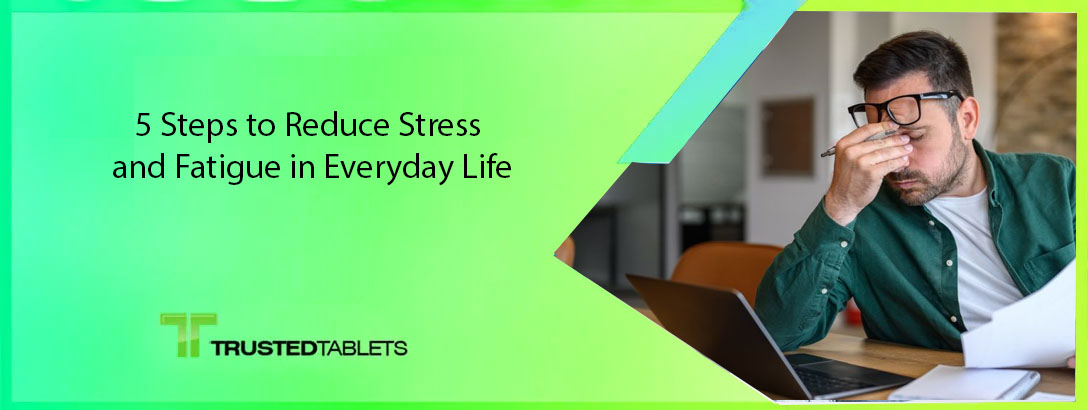If you’re feeling stuck in a never-ending cycle of responsibilities and struggle to take a real break without work or obligations creeping into your mind, it’s time to focus on making life a little easier.
We all experience stress and exhaustion from time to time, but chronic stress? That’s a whole different beast. Studies show that prolonged stress can wreak havoc on both your physical and mental health, leading to issues like depression, digestive disorders, heart disease, and other life-threatening conditions.
Stress is a natural response to external (environmental) or internal (mental) triggers, but often, we unknowingly amplify our stress levels through certain habits. Let’s break down some common culprits and how to tackle them head-on.
Overthinking Stressful Situations
Replaying negative experiences in your mind over and over? Bad idea. Experts say that ruminating on past stress doesn’t do you any favors—in fact, it does the opposite. Your brain doesn’t always distinguish between what you’re thinking about and what’s actually happening in the present moment, so reliving stressful moments only reinforces their impact.
How to break the cycle? Make a conscious effort to shift your mindset. Replace those endless loops of worry with positive affirmations like, “I am strong and capable” or “I am moving forward with confidence.” It might feel awkward at first, but over time, this simple shift can rewire your thought patterns.
Expecting the Worst
If your mind automatically jumps to the worst-case scenario—whether it’s worrying about an upcoming meeting or stressing over job security—you’re not alone. But this kind of thinking drains your energy and spikes anxiety levels.
How to stop the spiral? Try practicing mindfulness. Instead of dwelling on what might go wrong, bring your attention to the present moment. Pay attention to your senses—how your hands feel against a surface, the rhythm of your breathing, the sounds around you. Another trick? Ask yourself: “Will this problem still matter in a few months or years?” Most of the time, the answer is no. Recognizing that helps put things in perspective.
Procrastinating on Unpleasant Tasks
We all do it—pushing tasks aside because they feel overwhelming or stressful. But here’s the catch: procrastination doesn’t actually relieve stress; it makes it worse. The longer you delay, the heavier the burden feels.
How to get things done? Break big tasks into smaller, manageable steps. Completing each step gives you a sense of accomplishment and builds momentum. Before you know it, you’re making progress without the dreaded overwhelm.
Overindulging in Social Media
Scrolling endlessly through social media can feel like a harmless escape, but studies suggest it does more harm than good. Constantly comparing ourselves to others—friends, influencers, even strangers—can lead to feelings of inadequacy, stress, and self-doubt.
How to regain control? Set time limits for social media use and remind yourself that what you see online is often a curated highlight reel, not reality. Instead of measuring success by others’ lives, define your own metrics for happiness and fulfillment.
Strengthening Your Mental Resilience
Aside from changing thought patterns and habits, there’s one more thing to consider: your body’s ability to handle stress. According to naturopath and psychological consultant Günther Heppen, constantly being in “fight or flight” mode drains your energy reserves, leading to burnout, anxiety, and even depression.
How to reset your stress levels? Make it a priority to take intentional breaks. Even brief pauses throughout the day—taking deep breaths, stretching, or checking in with how you feel—can lower stress hormones and help you reconnect with yourself.
Heppen also emphasizes the importance of maintaining a balance of essential nutrients like B vitamins, vitamin D, and key minerals. He specifically recommends Schuessler Salts No. 3, No. 5, and No. 7:
- Schuessler Salt No. 3 (Ferrum Phosphoricum): Supports energy production and strengthens the immune system.
- Schuessler Salt No. 5 (Kalium Phosphoricum): Helps stabilize and calm the nervous system.
- Schuessler Salt No. 7 (Magnesium Phosphoricum): Relaxes muscles, improves sleep, and reduces stress levels.
Final Thoughts
Stress is a part of life, but it doesn’t have to control you. By changing the way you think, tackling tasks head-on, setting boundaries with social media, and taking care of your body, you can create a more balanced, less stressful life. So, next time you catch yourself spiraling into stress, take a deep breath and remind yourself—you’ve got this!


